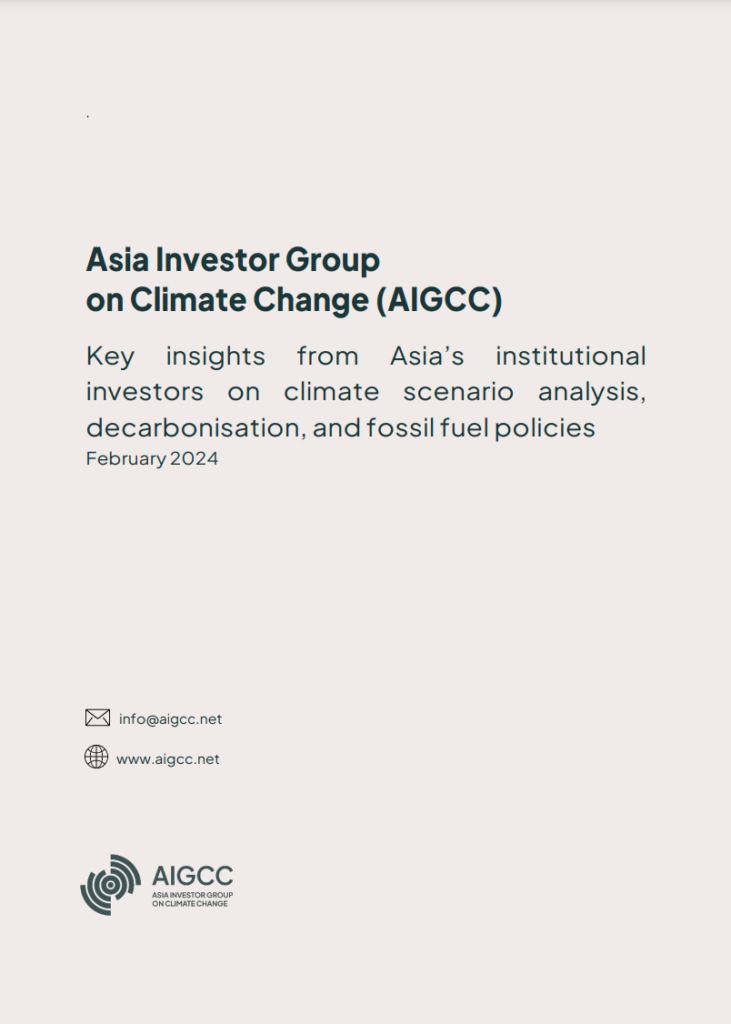This follows a series of closed-door dialogues that the Asia Investor Group on Climate Change (AIGCC) organised in 2023 amongst institutional investors. Each dialogue included perspectives from both asset owners and asset managers, either regionally headquartered in Asia or internationally headquartered with large investments in Asia. The topics of discussion included:
- Experiences of investors’ net zero implementation in Asia, including setting net zero targets.
- Accelerating decarbonisation in Asia by rethinking their investment approaches and implementation.
- Views on the use of climate scenario analysis.

Read the memo
Current State of Net Zero Implementation in Asia
Investors in Asia see a spectrum of sustainable investment opportunities in the region, and they should carefully examine their approaches as these would affect trajectory pathways towards net zero.
Investors agreed that setting actionable and implementable net zero goals, with guidance from industry frameworks, would improve their portfolio investments overall. Net zero goals should also be on achieving real world emission reductions. For example, by focusing on hard-to-abate and high-impact sectors within portfolios, or on setting goals to increase capital allocation towards transition finance and climate solutions.
Whilst implementing their net zero strategies, investors agreed that continuous internal education and capacity building is important to properly address climate change.
No ‘One-Size-Fits-All’ Approach for Decarbonisation
Investors are critically important to enable a low carbon transition in their economies. As Asia’s energy demand and share of decarbonisation continue to rise, investors similarly agreed that implementing decarbonisation tactics would vary in each market, given a diverse region like Asia.
Asia is still largely reliant on fossil fuels for energy demand. To enable managed coal phaseouts in these markets requires a multi-stakeholder collaboration between companies, investors, and governments.
Investors are rethinking their current internal fossil fuel policies as well. They are moving away from pure exclusion policies across parts of the portfolio to a more dynamic approach involving engagement for transition planning, responsible early retirement of coal plants, and an escalation of these plans.
AIGCC Director of Investor Practice Monica Bae said: “Investors have a critical role to play in the low carbon transition in Asia. In this region, there is a wide and diverse range of investment policies on fossil fuels; approaches range from divestment to engagement and credible transition planning.
“Against the backdrop of an evolving policy and investment landscape in Asia, resourcing and internal capacity building continues to be important. This includes implementing and adapting global frameworks in the local context, as well as understanding the cultural nuances, which would subsequently affect implementation tactics in each market.
“AIGCC will continue to facilitate similar forums and encourage an open dialogue amongst investors to share their perspectives on challenges, and ultimately to identify multistakeholder collaboration opportunities in their net zero journey.”